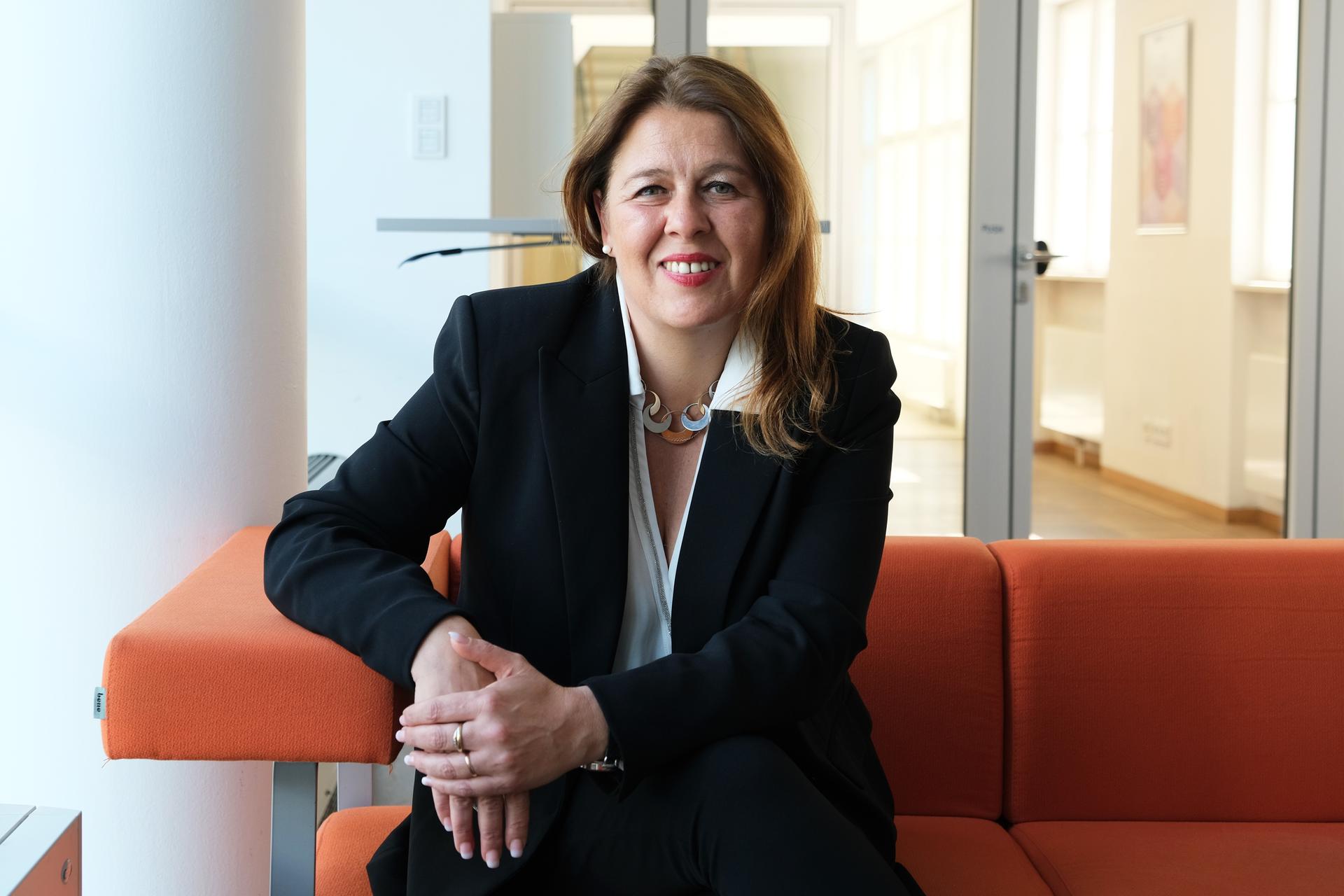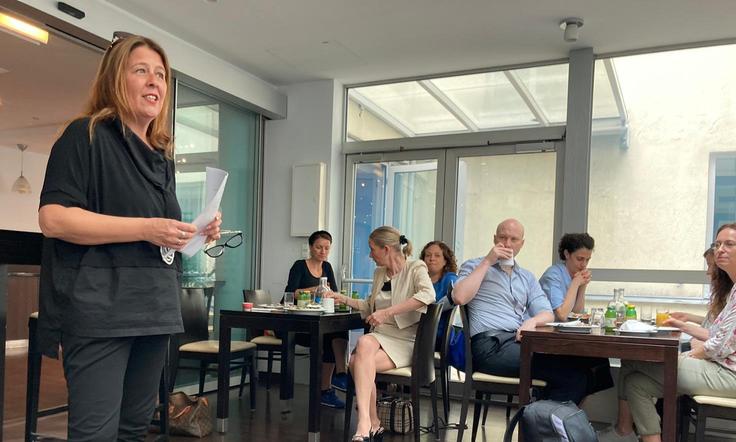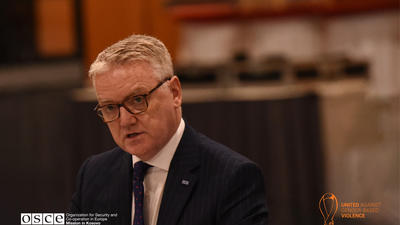-
Our work
-
Fields of work
- Arms control
- Border management
- Combating trafficking in human beings
- Conflict prevention and resolution
- Countering terrorism
- Cyber/ICT Security
- Democratization
- Economic activities
- Education
- Elections
- Environmental activities
- Gender equality
- Good governance
- Human rights
- Media freedom and development
- Migration
- National minority issues
- Policing
- Reform and co-operation in the security sector
- Roma and Sinti
- Rule of law
- Tolerance and non-discrimination
- Youth
- Field operations
- Projects
-
Meetings and conferences
- Summit meetings
- Review Conferences
- Ministerial Council meetings
- Plenary meetings of the Permanent Council
- Plenary Meetings of the Forum for Security Co-operation
- Security Review Conferences
- Annual Implementation Assessment Meetings
- Economic and Environmental Forum
- Economic and Environmental Dimension Implementation Meetings
- Human rights meetings
- Media conferences
- Cyber/ICT security conferences
- Conference of the Alliance against Trafficking in Persons
- Gender equality conferences
- Annual OSCE Mediterranean conferences
- Annual OSCE Asian conferences
- Partnerships
-
Fields of work
-
Countries
- All
-
Participating States
- Albania
- Andorra
- Armenia
- Austria
- Azerbaijan
- Belgium
- Belarus
- Bosnia and Herzegovina
- Bulgaria
- Canada
- Croatia
- Cyprus
- Czechia
- Denmark
- Estonia
- Finland
- France
- Georgia
- Germany
- Greece
- Holy See
- Hungary
- Iceland
- Ireland
- Italy
- Kazakhstan
- Kyrgyzstan
- Latvia
- Liechtenstein
- Lithuania
- Luxembourg
- Malta
- Moldova
- Monaco
- Mongolia
- Montenegro
- The Netherlands
- North Macedonia
- Norway
- Poland
- Portugal
- Romania
- Russian Federation
- San Marino
- Serbia
- Slovakia
- Slovenia
- Spain
- Sweden
- Switzerland – OSCE Chairpersonship 2026
- Tajikistan
- Türkiye
- Turkmenistan
- Ukraine
- United Kingdom
- United States of America
- Uzbekistan
- Asian Partners for Co-operation
- Mediterranean Partners for Co-operation
-
Structures and institutions
- Chairpersonship
-
Secretariat
- Secretary General
- Office of the Secretary General
- Conflict Prevention Centre
- Transnational Threats Department
- Office of the Special Representative and Co-ordinator for Combating Trafficking in Human Beings
- Office of the Co-ordinator of OSCE Economic and Environmental Activities
- Gender Issues Programme
- Opportunities for Youth
- Department of Human Resources
- Department of Management and Finance
- Office of Internal Oversight
- Documentation Centre in Prague
- Institutions
-
Field operations
- Presence in Albania
- Centre in Ashgabat
- Programme Office in Astana
- Programme Office in Bishkek
- Mission to Bosnia and Herzegovina
- Programme Office in Dushanbe
- Mission in Kosovo
- Mission to Moldova
- Mission to Montenegro
- Mission to Serbia
- Mission to Skopje
- Project Co-ordinator in Uzbekistan
- Closed field activities
- Parliamentary Assembly
- Court of Conciliation and Arbitration
- Organizational structure
- About us

Story
OSCE’s gender passionista – amplifying women’s voices for peace
- Date:
- Source:
- OSCE Secretariat
- Fields of work:
- Gender equality
She claims gender equality is in her genes. Now, Senior Gender Adviser Lara Scarpitta is ready to use her passion to strengthen the OSCE’s work on women, peace and security in all three dimensions, with a specific focus on strengthening the role of women-led grass root initiatives.
“I’ve had to hit the ground running, because the first few weeks have been extremely busy with all the activities going on in the gender issue program”, says Lara Scarpitta, as she organizes the papers on her desk.
“Luckily, I’ve got a fantastic team of competent and professional gender experts here, and that makes the work much easier”, she adds.
While only a few weeks into her Vienna life, Lara is no newcomer to the international gender scene. Before joining the OSCE, she worked for 15 years with the EU in Bosnia and Herzegovina, Turkey and Brussels, and more recently, as a Political and Mediation Advisor at the EU delegation in Geneva. She has more than a decade’s experience in integrating gender issues in mediation and peacebuilding and she has worked extensively on the role of women in conflict and post-conflict countries.
So, which part of the OSCE has gotten her most excited so far?
“Every single area of work in the three dimensions is exciting and important. From enhancing women's leadership to supporting the economic empowerment and women’s role in the security sector. We have several initiatives running and more are lining up”, she responds diplomatically.
However, with an extra nudge, she admits that one issue is particularly close to her heart – supporting women's leadership and the Secretary General’s Women Networking Platform for Leaders, Peacebuilders and Mediators.
Critical links foster legitimacy
“For more than 10 years, I worked directly with getting Syrian and Yemeni women involved in their peace processes. One of the most important things we did there was to amplify women’s voices and link the grass root initiatives with the peace processes, which is precisely what the Secretary General’s networking platform is all about”, Lara says.
Bringing together female representatives from civil society, human rights defenders, politicians and others is a way to counter the gap that often occurs between local communities and the high-level negotiations.
“At the time, this was a very innovative and successful approach in the contexts of Syria and Yemen, because it allowed us to bring the ‘real issues’, which matter to local communities, to the forefront. And it also addresses the question that you always find in peace processes, which is ‘Do the women and men at the negotiation table represent me?’”, Lara continues.
The Secretary General launched the networking platform last year, allowing women from all over the OSCE to come together and share their experiences. At the same time, it raises awareness about the importance of women’s leadership and participation in peace processes, the importance of local female peacebuilders and the work that they do.
Within the platform’s framework there is also a high-level mentorship program, where 10 prominent women mediators and peacebuilders from across the OSCE region are paired with young mentees. According to Lara, it is a unique opportunity to foster leadership and equip young women with the necessary mediation, negotiation, and leadership skills.
“Networking and peer-to-peer exchanges are critical to promoting leadership and women’s active participation in peacebuilding, conflict and post-conflict resolution”, she says.
Slow, but steady improvement
Growing up in Sanremo in Italy, Lara was brought up by a feminist mother and grandmother, in what she describes as “a house full of strong women”. She believes this helped her choose her current career path, even though her passion for gender equality only fully ignited when she worked as a human rights adviser in Bosnia and Herzegovina.
“I worked with women who were victims of sexual violence. Many of them were still in collective centers and the impact of displacement and conflict was evident. I became conscious of how women are disproportionately affected by conflict and how responses need to be tailored to women’s needs”, she says.
In 2020, the international community marked the 20th anniversary of the UN Security Council Resolution 1325, on women, peace and security. At the celebrations in New York, one aspect was unanimously acknowledged: progress has been slow and insufficient.
“Women are not at the table from the beginning because there is no mechanism to ensure this. But in my experience from Syria and Yemen, and from what we see in Ukraine, women are very much involved in important aspects of ceasefire agreements. Many are negotiating local truces, or negotiating prisoners’ release and humanitarian access. They are the ones doing the work, so why shouldn’t they be included from the beginning?”, Lara argues.
However, she maintains that we need to do more to support women in other aspects than just peace processes. For example in women’s economic empowerment, through access to education and job opportunities. Fighting gender-based violence, making sure that women and girls do not have to experience forced marriage, sexual violence and child pregnancies, is also crucial. Only then will it be possible to implement the 2004 OSCE Action Plan successfully.
While acknowledging the still existing gaps, the Italian gender champion believes there have been some positive turns in the past two years.
“There is a lot of international attention to turn the 1325 Resolution into a solution, and countries around the world are making efforts to update their national action plans. For instance, the question is no longer why do we need women in peace processes, but how do we include them”, she says.
OSCE leading by example
The OSCE comprises a vast number of participating States that have very different approaches to gender equality and women’s rights. However, the new Senior Gender Adviser is nothing but positive when it comes to working with such a varied interest.
“A considerable bulk of participating States are gender champions and we will continue to work with them. I also want to reach those that do not put gender as one of their key priorities. There could be many reasons for that, and while some may be sensitive, there is always a possible entry point, it’s just a question of investing in dialogue and understanding”, she says.
Still, there is no denying that changing people’s perception of gender and gender equality may take years. How does Lara plan to measure success when it comes to gender equality?
One example is the 70 OSCE gender focal points, “a fantastic network of experts” within the institutions and field offices. They do very important work with civil society organizations, supporting networks all over the OSCE region.
“Also, if you look at our participating States, two-thirds have regularly updated and implemented national action plans. To me, this is very significant. And the fact that you have 40 percent of women in leadership positions in the OSCE structures is a big success. Of course, a lot more needs to be done, but we are going in the right direction and the OSCE is well placed to lead by example.”
OSCE Impact
Discover more stories about how the OSCE improves lives.


